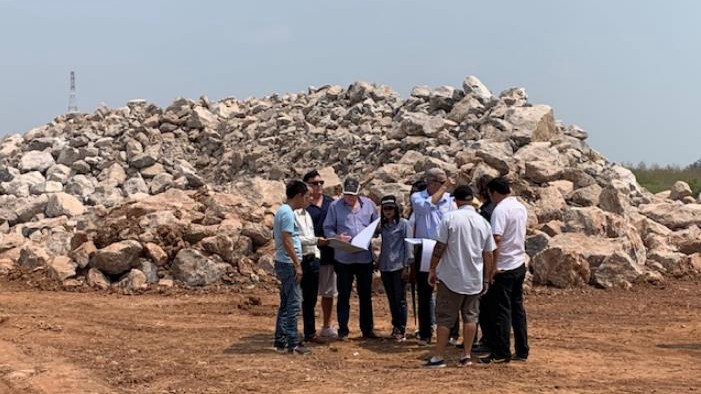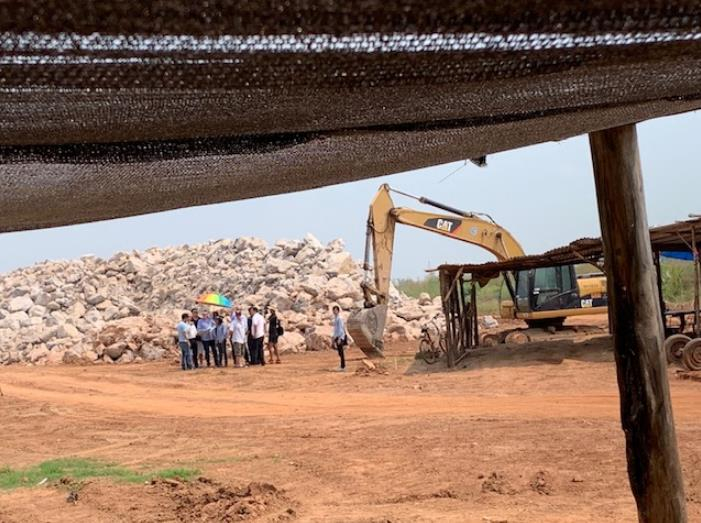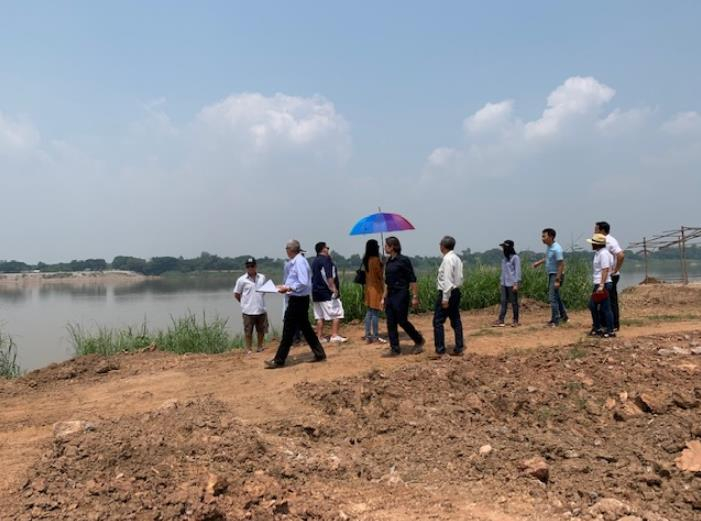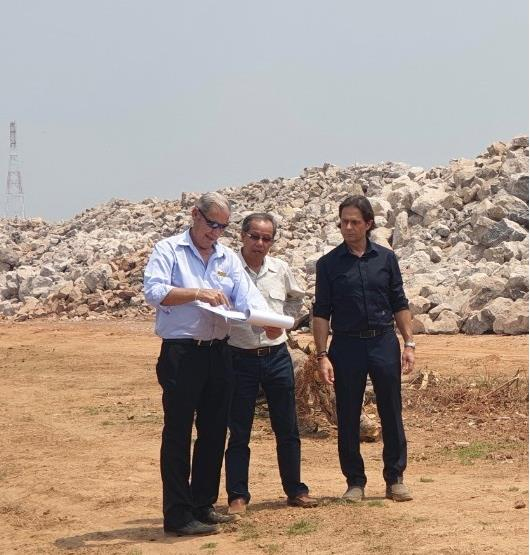
A site meeting at the proposed International Business Hub in Nong Khai, Thailand. /CGTN Photo
A site meeting at the proposed International Business Hub in Nong Khai, Thailand. /CGTN Photo
"Build it – and we will come!"
That's the enthusiastic response to an ambitious plan to create a 250-million-U.S.-dollar international business hub in northeast Thailand – alongside the tracks of the coming high-speed rail.
The proposal foresees high-flying executives having an Asian base in the city of Nong Khai – from where they can jump on a fast train and be whisked within hours to meetings in China, Southeast Asia, and beyond.

The hub would take advantage of the coming high-speed rail network. /CGTN Photo
The hub would take advantage of the coming high-speed rail network. /CGTN Photo
"Many people want to do business in China but it is not always practical to open an office there, especially if you have other customers across the region," said one of the plan's key drivers, Ernie Draper, managing director of Isan Real Estate in northern Thailand.
"But the arrival of the high-speed train will make Nong Khai an ideal location for anyone doing business in Asia."
The proposal is an early example of the "ribbon prosperity" that backers of China's plans for a Trans-Asia high-speed railway have been predicting.
They say the railway has always been about more than simply speeding up travel from A to B.
China's key Belt & Road mega-project is to construct a track – in partnership with the countries it passes through – from southern China to the Laos, Thailand and Malaysia… and on to Singapore.
In the future the line could branch out to Myanmar, Cambodia, Vietnam, even India.
Nong Khai is a key point. It is where the train will enter Thailand from the Laos.
The city is located in the agricultural northeast of the country – the least-developed region with the highest percentage of low-earners and the most in-need of investment.
A huge 56-acre site on the banks of the Mekong River, just 3.5 kilometers from the planned Nong Khai high-speed rail station, has been earmarked for the proposed business hub.

The 56-acre site has almost a kilometer of Mekong River frontage. /CGTN Photo
The 56-acre site has almost a kilometer of Mekong River frontage. /CGTN Photo
"We are not aware that such an idea has been considered anywhere in this region before, we believe it would be a game-changer for how people can do business in Asia," said Draper.
Brussels-based lawyer Jean-Marc Goossens has been discussing the plan with business leaders in Belgium, Switzerland, the U.S. and the UK.
"I talked to seven CEOs from big Belgian and European companies and their first reaction was very positive, even enthusiastic. They all said the same thing. They told me: build it – and we will come!" he said.
The project can be a gateway to the Asian market for small, medium-sized and large companies.
"For them it will be a lot easier to have only one office than to open different offices in Beijing, in Singapore, in Bangkok, in Kuala Lumpur… so only one office in the business center."

Jean-Marc Goossens (R) said businesses are saying: "Build it – and we will come!" /CGTN Photo
Jean-Marc Goossens (R) said businesses are saying: "Build it – and we will come!" /CGTN Photo
Draper continued: "If you look at Southeast Asia, Asia, India, the other countries involved – let's look at China and India with a population between them of over four billion people – you have all these other countries involved as well… who's in the center, it's Thailand."
"Asian companies want to do business face-to-face, an international business park alongside the high-speed rail gives businessman the opportunity to do business direct."
"The train will let you communicate and commute at the same time."
"You can be on the train overnight with a notebook, WiFi on the train. You can be in Kunming with a connecting train to Shanghai, Beijing, wherever you want to go and in the future maybe India, Bangladesh," he said.
There are those who question the viability of the high-speed network – whether it can generate enough passengers to pay its way.
But its backers say the train will bring investment and development wherever it goes.
Trains are due to begin running in Thailand by 2023; construction is well advanced in Laos, and there's growing momentum for the project in Malaysia.